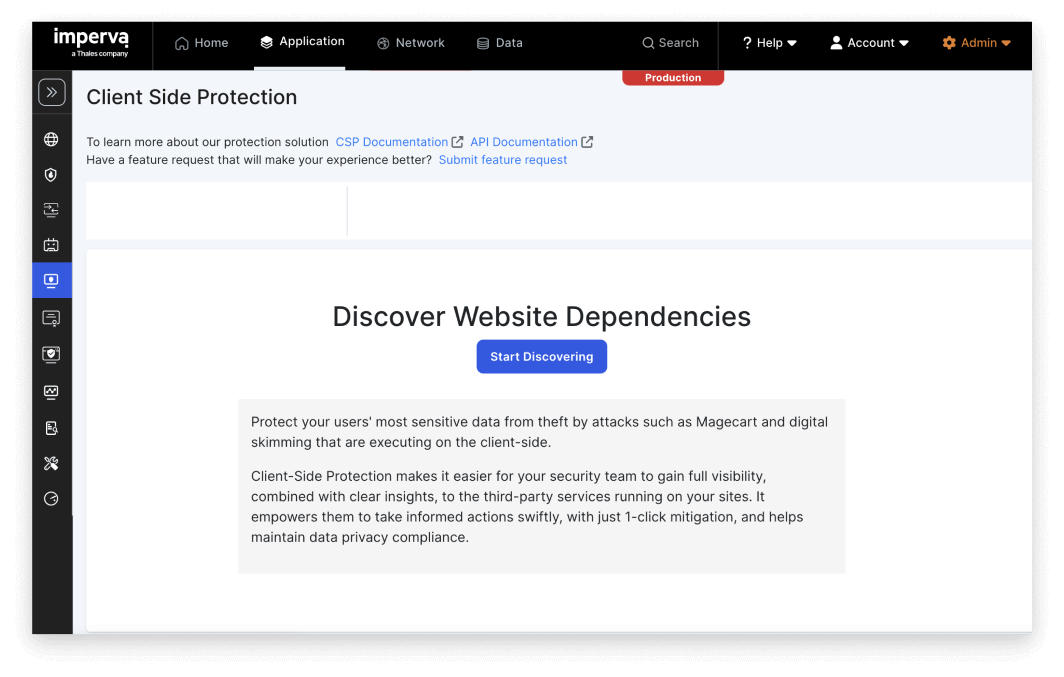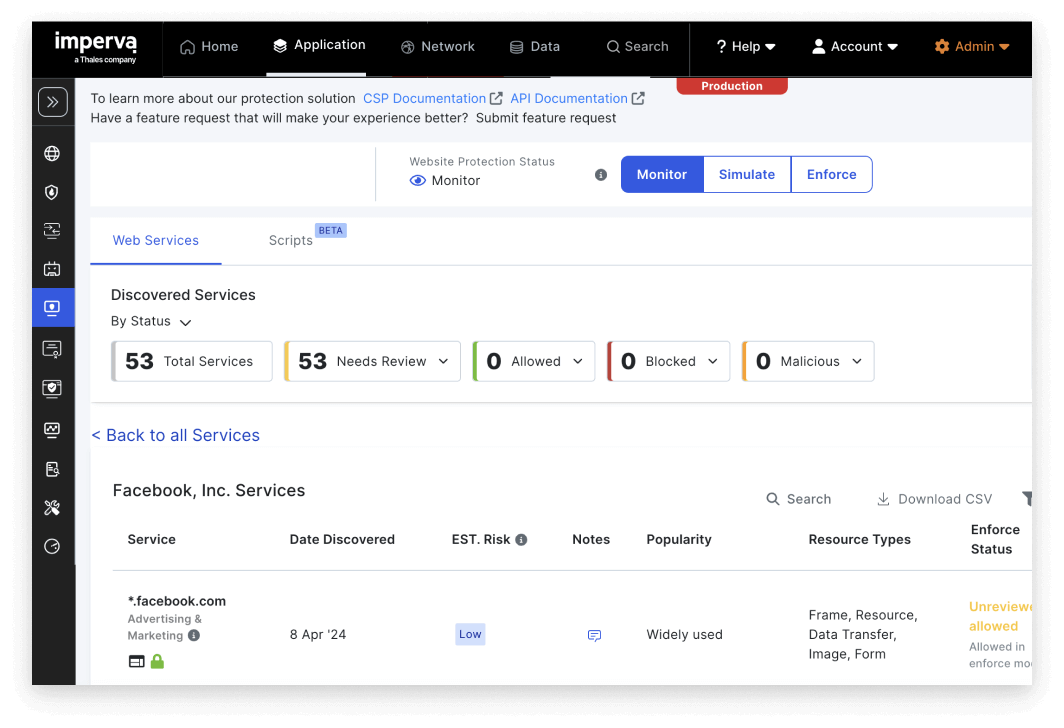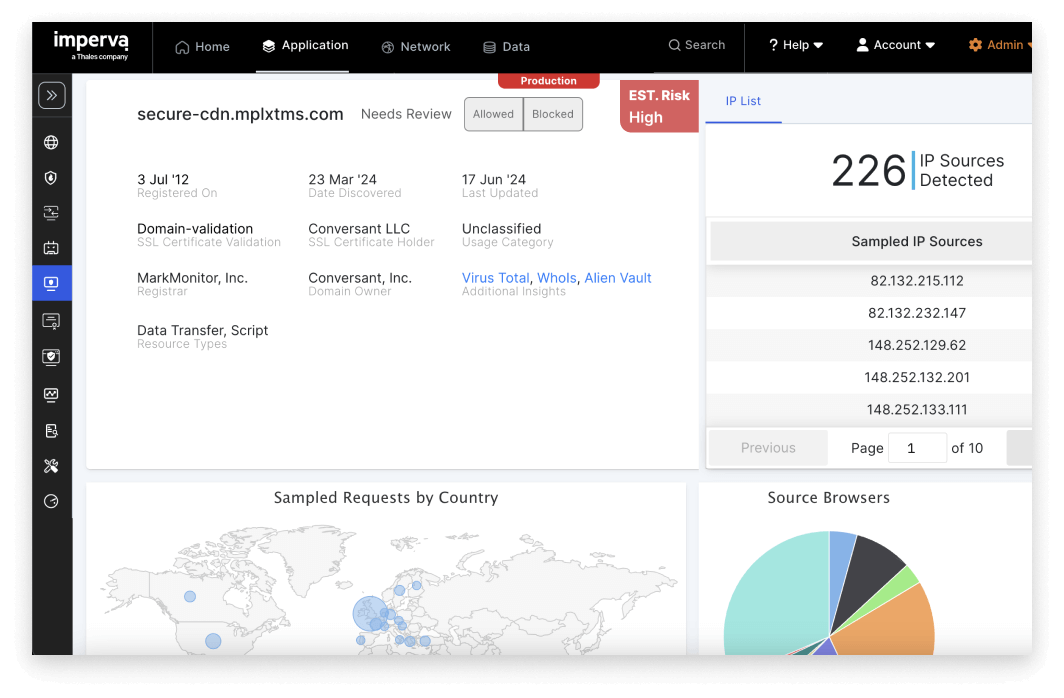
Secure your client-side and streamline compliance for PCI DSS 4.0
A typical website runs over 30 JavaScript services, creating a blind spot for organizations. Attackers exploit this to inject malicious code and exfiltrate sensitive data in attacks such as Magecart, leading to long-term, devastating data breaches.
- Gain visibility and control
Real-time discovery and monitoring of all client-side resources and scripts behavior ensures complete visibility. Gain control over all first- and third-party JavaScript code embedded on your website. - Reduce risk
Actionable insights make it easy to identify risky resources, headers, and scripts. Continuous monitoring alerts the security team to any new services. And if any JavaScript code is compromised, your security team is the first to know. - Streamline regulatory compliance
Comprehensive inventorying, authorization, dynamic integrity verification, and real-time monitoring streamline regulatory compliance with the new client-side security requirements introduced in PCI DSS 4.0.
What is Client-Side Protection
As web applications rely more on client-side logic and third-party code, client-side attacks are on the rise. These attacks can steal sensitive customer data, leading to breaches and noncompliance with data privacy regulations. PCI DSS 4.0 addresses this threat with new client-side security requirements. Imperva Client-Side Protection offers comprehensive visibility, actionable insights, and easy controls, enabling security teams to effortlessly manage client-side resources and JavaScript while streamlining compliance with PCI DSS 4.0 requirements 6.4.3 and 11.6.1.
How Client-Side Protection works

Continuous discovery of existing and newly added services on your site, providing comprehensive visibility into client-side resources and JavaScript and real-time alerts for newly discovered services. It monitors script changes and identifies and flags any services doing data transfers. Flexible alerting options are available through emails, APIs, or SIEM.
Actionable insights enable security teams to assess each service swiftly. A domain risk score provides a credibility rating to simplify the assessment of each service, identifying compromised code and obfuscated scripts that may hide malicious activity. AI Explain leverages artificial intelligence to clarify each script’s actions, reducing the time and effort needed by security practitioners.
Easy enforcement options give security teams full control over the client-side. Security teams can block or authorize services using a negative or positive security model with one click. A zero-trust approach blocks new services or changes until they are reviewed and authorized. Instant Blocking handles known malicious services out-of-the-box, while Advanced Enforcement offers granular configurations.
The PCI Dashboard addresses PCI DSS 4.0 client-side security requirements by clearly explaining each requirement and identifying related action items. It validates content security policy headers, offers weekly summaries for payment page changes, and helps you stay audit-ready while monitoring compliance-affecting changes easily.
By leveraging the Imperva Cloud Application Security solution, Client-Side Protection deployment is safe and straightforward, with a fast detection process that starts within minutes. This extra layer of security provides numerous benefits to websites without causing additional latency or requiring any code changes. Most importantly, it will not disrupt the functioning of your website.
See how we can help you secure your applications and APIs
